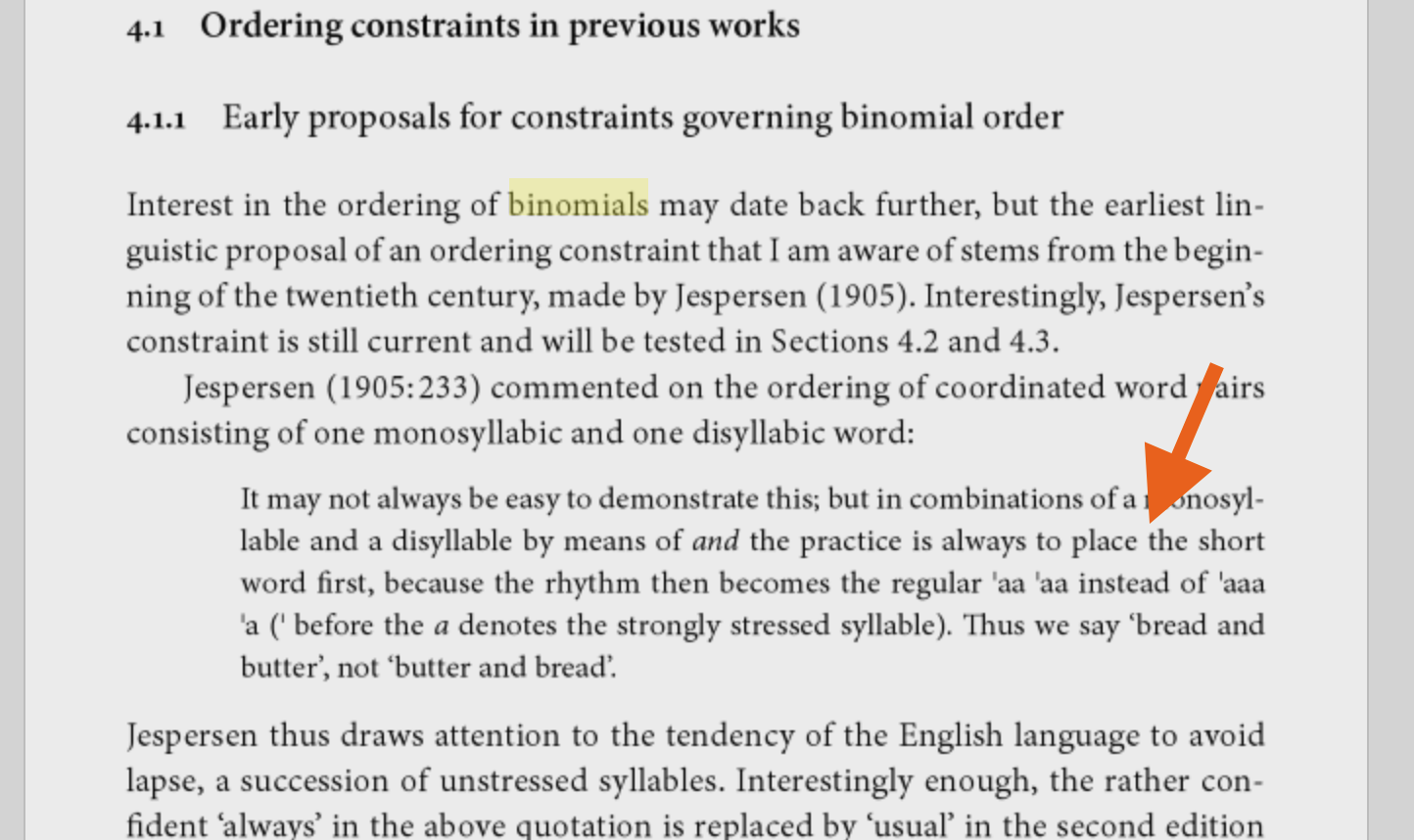I believe the only deep ultimate answer to your question is that the words 'scan' better in that order. (Probably because "thunder-and" groups up as one scan, so it's kind of a two-beat ... thunder-n / lightning.)
If you haven't thought much about "scan" in languague: try saying the phrase in question very aggressively in both directions (reduce the "and" to just an "n" stuck on the end of the first word); it really only works in the way we are more familiar with it. ("Thundern Lightning" versus "Lightningn Thunder". "Thundern Lightning" can be delivered in two beats, punch punch. If you try to say "Lightningn Thunder" aggressively it's 1-2-3-1-2 or something at best, or you have to do a "lift".)
Note that for many, perhaps all, such "binomials" (assume that is the best term), the scan being better one way than the other is critical.
Note critically: if you're thinking "well hell I have my own ideas on this scan business", then:
The fact that love and marriage, horse and carriage, odds and ends, thunder and lighting, DO IN FACT APPEAR that way in lyrics, many times over, is indeed proof that the scan is that way. If marriage and love, or, lightning and thunder worked better in terms of scan, then Sammy Cahn, Jeff Lynne, Shakespeare et al would certainly have done them that way.
It's worth noting that
donner and blitzen
as a phrase was immortalised (or, something) recentishly by, in brief, the poem "Night before Christmas".
Donner, bliztenBlizten are of course just cute names for the reindeer, frombased on the German words for thunder, lightning (donner, blitz, respectively). (For full details on the origin of these fun names, which is utterly irrelevant to this question, as I said previously click to this article )
Many common phrases do in fact originate in popular lyrics or film, books or Shakespeare (ranging from "Let it be", "Love, love, love" to "I'll be back" or "Off with his head").
By: in this case by no means was this the first time the pair was used that way, I'm just pointing out it's yet another reason it seems so natural that way. It's a nursery rhyme basic.
Here are two other massive cultural references, in English, which uses that ordering:
from 1977:
https://www.youtube.com/watch?v=lnpqx7TCRnQ
from 1975:
https://youtu.be/fJ9rUzIMcZQ?t=3m6s
Also has been mentioned:
from 1600:
https://en.wikipedia.org/wiki/William_Shakespeare
from "sometime":
There is a vagueAn answer above which mentions the tuple was used "in the bible",
so anyone interested in facts could find out what year the translation (or...whatever) in question appeared.
I believe the only deep ultimate answer to your question is that the words 'scan' better in that order. (Probably because "thunder-and" groups up as one scan, so it's kind of a two-beat ... thunder-and / lightning. try saying it very aggressively in both directions; it really only works in the way we are more familiar with it. Of course "scan" is very subjective in poetry/lyrics, but I'd say most lyricists would see it that way.)

